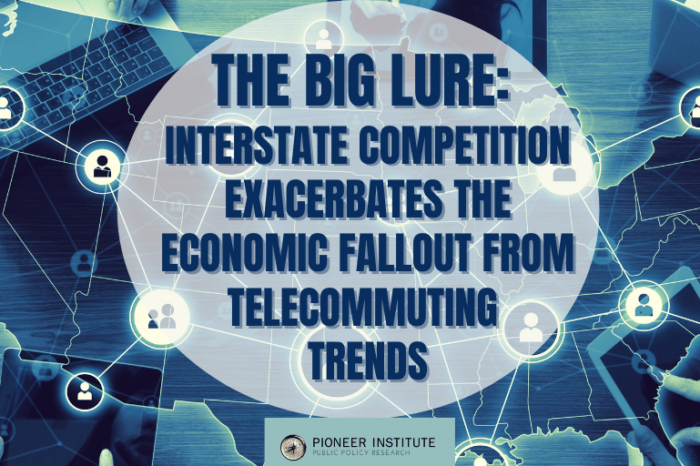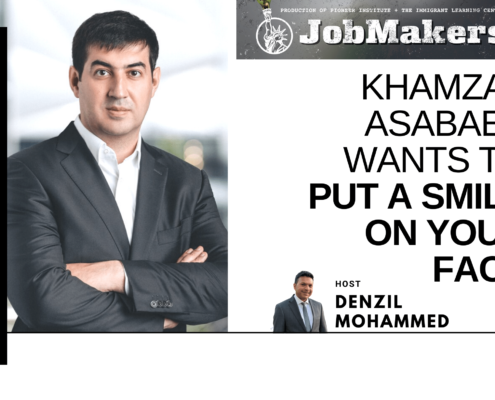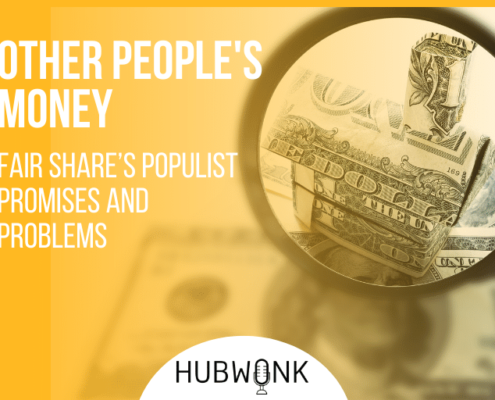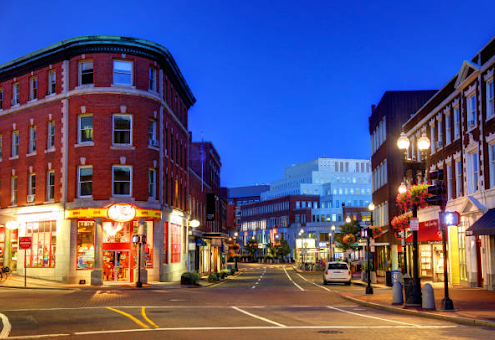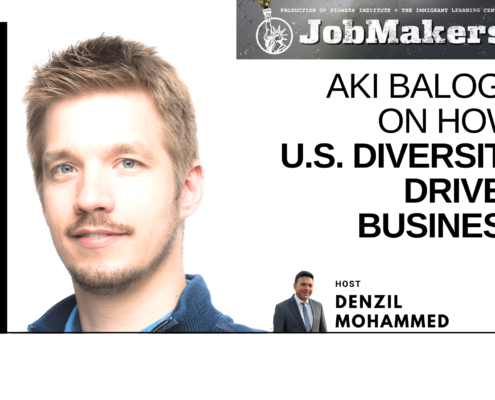Study Says Interstate Tax Competition, Relocation Subsidies Exacerbate Telecommuting Trends
BOSTON – A spate of new incentive and subsidy programs seeking to lure talented workers and innovative businesses away from their home states could constitute an additional challenge to Massachusetts’ economic and fiscal recovery from COVID-19, according to a new study published by Pioneer Institute.
In recent years, dozens of cities and states around the country have begun subsidizing moving costs, housing prices, and even student loan payments for new residents, usually in an effort to expand their tax bases and boost their economies. As employers are pressured to allow telecommuting more broadly after the pandemic, this, coupled with high housing costs in Massachusetts, leaves major job centers like Boston vulnerable to an exodus of economic activity.
“Between the soaring costs of living, rise of telecommuting, and incentive programs to move elsewhere, it’s a perfect storm,” said Andrew Mikula, author of The Big Lure: Interstate Competition Exacerbates the Economic Fallout from Telecommuting Trends. “With such a fluid situation on workforce mobility, no one can take for granted that Boston’s past labor market advantages will protect it from the effects of a business-unfriendly environment in a post-COVID world.”
Of the 37 U.S. cities that pay residents to move there, 28 have median housing prices less than half that of Massachusetts, according to MakeMyMove.com. Several in the rural Midwest, where real estate is especially cheap, will give land to newcomers for free. Others focused on attracting younger talent offer free WiFi, access to coworking spaces, and, in Northwest Arkansas, even a brand-new mountain bike.
While it’s too early to know whether these programs actually translate into long-term economic benefits for the cities and states they aim to revive, the sheer scale of interest in “pay you to relocate” deals should be concerning to those in traditional job centers. Tulsa, Oklahoma, a city of 400,000 people, has received more than 20,000 applications for its relocation incentive program since 2018. Topeka, Kansas, population 130,000, received over 3,500 within its program’s first 30 days. The COVID-19 pandemic has already reduced the number of jobs in Massachusetts, and programs like these could make it easier for workers of all stripes to leave as well.
The new study also emphasizes the lengths to which jurisdictions have gone to attract corporations across state lines in recent years, with tax breaks associated with landing Amazon’s second headquarters and Wisconsin’s Foxconn deal being prime examples. A 2020 Princeton study found that U.S. state and local governments use tax incentives to lure companies worth at least $30 billion annually. In 2018, at least 11 proposals for Amazon’s second headquarters were valued at $1 billion or more.
These economic development strategies may in part explain the steady increase in the share of corporations that change locations in a given period. In the 1990s, the three-year migration rate for large firms in the U.S. was about 3 percent. By the early 2010s, it was nearly 6 percent.
“Attracting and retaining talent has been a big part of the Boston renaissance,” said Pioneer Institute Executive Director Jim Stergios. “As we come out of the pandemic, we know that telecommuting trends will continue to change the calculus on where to locate. With cities and states offering our younger, highly mobile residents and start-ups cheaper and roomier locales as well as generous subsidies, state policymakers should avoid tax and regulatory policies that exacerbate the cost of living and doing business in Massachusetts.”
About the Author
Andrew Mikula is Economic Research Analyst at Pioneer Institute. Mr. Mikula was previously a Lovett & Ruth Peters Economic Opportunity Fellow at Pioneer Institute and studied economics at Bates College.
About Pioneer
Pioneer’s mission is to develop and communicate dynamic ideas that advance prosperity and a vibrant civic life in Massachusetts and beyond. Pioneer’s vision of success is a state and nation where our people can prosper and our society thrive because we enjoy world-class options in education, healthcare, transportation and economic opportunity, and where our government is limited, accountable and transparent. Pioneer values an America where our citizenry is well-educated and willing to test our beliefs based on facts and the free exchange of ideas, and committed to liberty, personal responsibility, and free enterprise.
Get Updates on Our Economic Opportunity Research
Related Posts:

